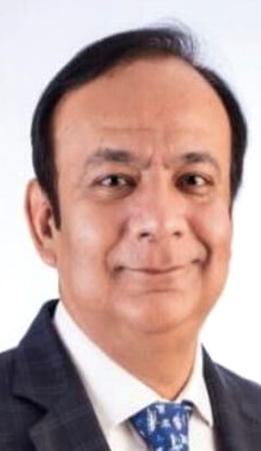Tyremaker JK Tyre is eyeing a two-third contribution from its premium tyres by FY26. The company will be launching Green Tyres and will focus on increasing their touchpoints to rural areas. Anuj Kathuria, President (India), JK Tyre & Industries, spoke to businessline on the company’s plans ahead. Excerpts:
JK Tyre has announced an investment of ₹1,400 crore for truck and bus radials and passenger car radials. Will the investment be used for capacity expansion and getting into new segments?
We have nearly completed the expansion of our Banmore plant in Madhya Pradesh, giving us a 16 per cent capacity increase for passenger cars. We will further enhance our capacity and are working on premiumisation with higher rim sizes in passenger cars. With the expansion, we will be able to produce tyres up to 24 inches in rim sizes.
The premium tyres in passenger cars are seeing an uptick in demand. What growth is JK Tyre targeting?
We are close to 30 per cent in premium tyres of 16 inches and above in the overall tyres that we sell in the replacement market. If you take 15 inches and above then we are 50 per cent in the segment The premium segment will go up and we expect the contribution of premium tyres to revenue and sales to become two-thirds by FY26. The demand will also come from entry-level cars as we are seeing positive indicators of the rural demand picking up. We are hopeful that post-elections and with good monsoons, the rural economy will pick up.
JK Tyre introduced smart tyres that indicate to the user the life of the tyres and detect punctures. What other technology is the company working on?
We will be commercially launching green tyres which are 80 per cent sustainable and include some parts that are recycled and bio-derived rather than bio-degradable. The tyres have performed at the same level as other tyres, we have performed the basic validation. Market creation is being done as cost dynamics is to be seen. We plan to introduce it by FY26 and are now talking to original equipment manufactures (OEM) .
What is the share of electric vehicle tyres for JK Tyres?
Electric vehicles need to be put in three buckets, buses (intra-city buses), two-three wheelers and passenger cars. In the intra-city buses, we are the market leaders, we work with electric vehicle bus manufacturers, and fleet operators and provide them with tyres in cost per kilometre. For two and three-wheeler tyres we are working with OEMs and start-ups and our products are ready to meet the requirements. For passenger cars, we have a product for the replacement market but the overall sales of passenger electric vehicles is 2 per cent and most of it is in OEM fitment and not in replacement. We are working with OEMs for the passenger electric vehicle fitment with the vehicles that will be introduced in FY25 and FY26.
With exports remaining flat in FY24, do you see demand picking up?
Exports were flat in FY24 compared with FY23. However, the trends were reversed. In FY23, the start was very good but it came down in quarter 3 and quarter 4. In FY24, the first two quarters were not that great but the next quarters, compared with the corresponding quarters, there was a good growth of 35 per cent and above. In the truck and bus radial tyres space, in the US market, there was an inventory build-up that happened because of the geo-political scenario. After it got stabilised, the liquidation happened in the first three quarters of FY24 and now we are seeing the demand picking up.
Is there any new geographies that JK Tyre is looking to enter?
We are evaluating the markets where we can go. We have a presence in Europe, the USA and Latin America but we are seeing how we can enhance it. We are also looking to expand in the Middle East and Egypt market.
JK Tyre had introduced Dial-a-Tyre; what is the response from consumers? Do you plan to increase the touchpoints?
Dail-a-Tyre works for a particular segment, as a tyre as a product is different from a consumer product. The customer wants to get complete support. We have reinforced our focus on brand shops in the commercial and passenger vehicle space. We have 800 brand shops in total and now we are targeting to reach 1,000 in FY25. We are present in 6,500 touchpoints and we are looking to take it to 7,000 touchpoints by this year. We would like to expand our presence in rural, not only in commercial vehicles but also in two and three-wheelers and passenger cars.
What is the situation on raw material prices?
We expect the raw material prices to go up by 3 to 4 per cent. Last quarter, we could manage because of inventories, but this quarter, we are seeing an impact. We have taken a price increase earlier but are working on overall growth in the output market. The prices depend on the global demand. If the raw material prices go up further, then we will have to take price increases.






